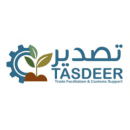Sewing Trainers
Job Description
This job listing expired on 2023-01-12
Browse Latest Jobs
when applying to a job online , never give your
credit card or bank account information,
or perform any sort of monetary transaction to a prospective employer. For your privacy and protection:
Latests Jobs By
Trade Facilitation & Customs Support Programme
Job Title
Date Posted
HR Officer
Ramallah
30, Jun
Finance & Trade Compliance Officer
Ramallah
23, Jun
Solar Energy Advisor
Ramallah
4, Jun
Grants & Procurement Officer
Ramallah
23, May
Challenge Fund Coordinator
Jerusalem, Ramallah, Rawabi, B...
30, Apr
Procurement Officers
Ramallah
10, Feb
Grants Officers
Ramallah
10, Feb
Assistant Delivery Advisor
Ramallah
6, Feb





